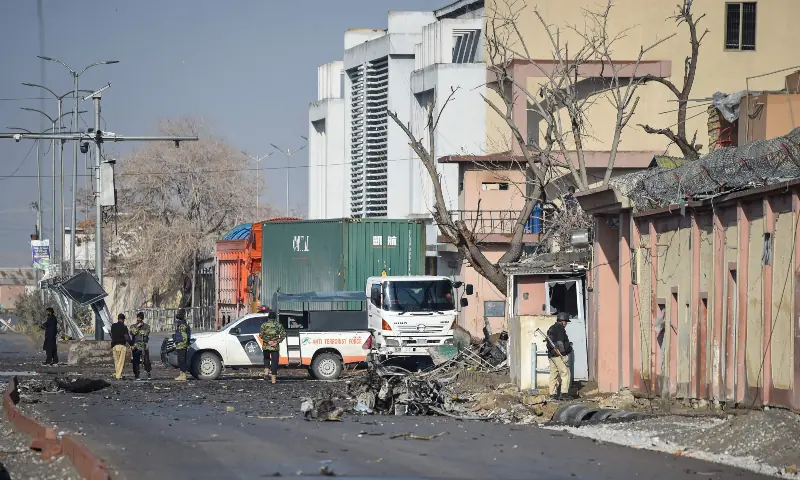New Delhi: Prime Minister Narendra Modi arrived on Sunday for his first-ever visit to Nigeria. The Indian community in the West African country turned up in large numbers to welcome him. They gave him a rousing reception at Abuja airport, chanting ‘Bharat Mata Ki Jai’ and ‘Vande Mataram.’
Thanking the Indian Diaspora in Nigeria for welcoming him, PM Modi wrote a post on X:
Heartwarming to see the Indian community in Nigeria extending such a warm and vibrant welcome!
– Narendra Modi November 16, 2024
Prime Minister Modi also praised the Indian community living in Nigeria for remaining connected with their roots, language, and culture. The Prime Minister also interacted with a large number of Indian women, children, and men living in the West African nation and uploaded pictures with them.
In another post, PM Modi tweeted: “In Nigeria, the Marathi community expressed joy at Marathi being conferred the status of a Classical Language. It is truly commendable how they remain connected to their culture and roots.”
The city of Abuja was decked out with posters and hoardings of PM Modi early on Saturday as the Prime Minister emplaned from India for his five-day visit to three nations including Nigeria.
Arrival in Nigeria
PM Modi arrived in Abuja on Sunday.
Nigeria is the first stop in the PM’s five-day visit to three nations where the head of both nations aims to strengthen the strategic ties.
After his visit to Nigeria from November 16 to 17, PM Modi will be heading to Brazil for the G20 summit.
PM Modi’s final destination is Guyana.
The Indian diaspora expressed their enthusiasm surrounding PM Modi’s maiden visit to Nigeria.
Nigerian President Bola Ahmed Tinubu personally welcomed PM Modi at Abuja airport on Sunday, highlighting the importance of the visit to strengthen India-Nigeria ties.
Taking to social media platform X, PM Modi thanked President Tinubu.
“Landed a short while ago in Nigeria. Grateful for the warm welcome. May this visit deepen the bilateral friendship between our nations,” PM Modi tweeted.
PM Modi became the first Indian Prime Minister to visit the West African nation in 17 years.
“I look forward to welcoming Prime Minister Narendra Modi on his first visit to Nigeria, which is also the first visit by an Indian Prime Minister to our dear country since 2007. Our bilateral discussions will seek to expand the strategic partnership between both countries and enhance cooperation in critical sectors. Welcome to Nigeria, PM Modi @narendramodi,” said Nigeria President Tinubu on Sunday.
Also See: India at G20: Is the Glitter Just Surface Deep?
PM Modi’s Historic Visit to Nigeria
President Tinubu invited PM Modi to Nigeria. Upon his arrival, Minister for Federal Capital Territory Nyesom Ezenwo Wike warmly received him in Abuja. Additionally, the Minister presented PM Modi with the Key to the City of Abuja. According to the Ministry of External Affairs (MEA), this gesture symbolized trust and honour from the Nigerian people.
Nigeria will also confer its second-highest national award, the Grand Commander of the Order of the Niger, on Prime Minister Narendra Modi, making him the second foreign dignitary to receive the distinction.
The Nigerian government awarded Queen Elizabeth the GCON in 1969, making her the only foreign dignitary to receive the honor.
This will be the 17th such international award being conferred on Modi by a country, they said.
President Tinubu expressed his eagerness to welcome PM Modi, stating that their discussions aim to expand strategic partnerships and enhance cooperation in key sectors.
“Welcome to Nigeria, Prime Minister Modi,” Tinubu said in a post on X.
PM Modi responded with gratitude, sharing images of his arrival and expressing hope for deepening bilateral friendship between India and Nigeria.
PM Modi earlier stated that he was visiting Nigeria at the invitation of Nigerian President Bola Ahmed Tinubu. He further noted that this would be his first visit to Nigeria, a close partner in the West African region. Moreover, Modi highlighted that the visit would serve as an opportunity to build upon the Strategic Partnership, founded on a shared belief in democracy and pluralism. Additionally, he expressed eagerness to meet the Indian community and friends from Nigeria who had sent him warm welcome messages in Hindi.
This news is sourced from NDTV and is intended for informational purposes only.

![Narendra Modi receives a warm welcome from the Indian diaspora and Nigerian leaders during his first visit to Nigeria. [Image via The Statesman]](https://southasiatimes.org/wp-content/uploads/2024/11/IMG_6275-1024x683-1.webp)




